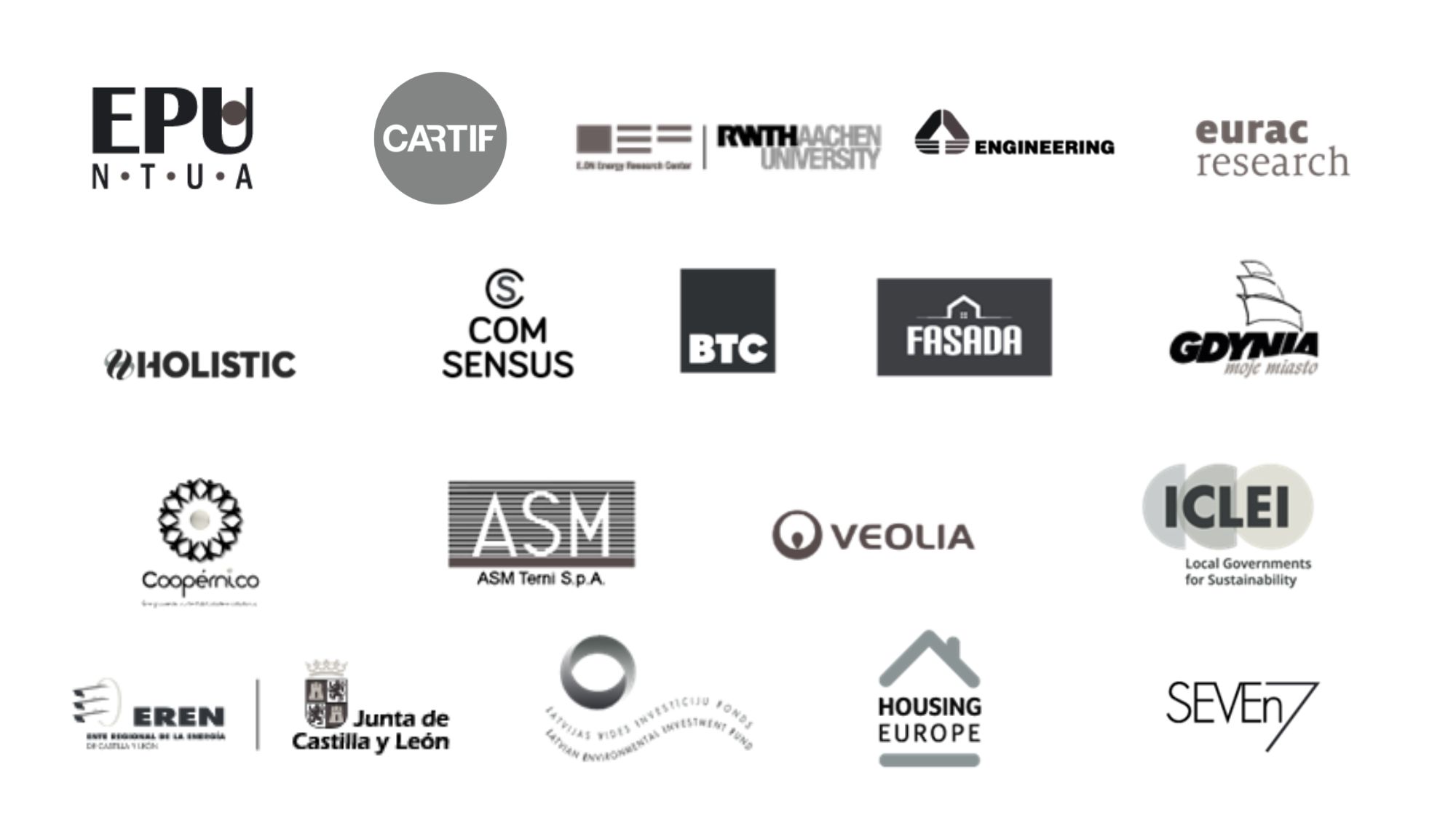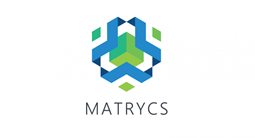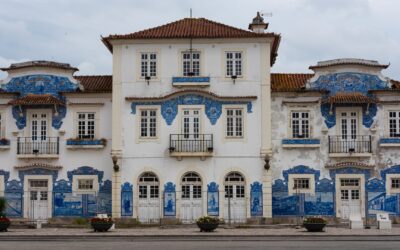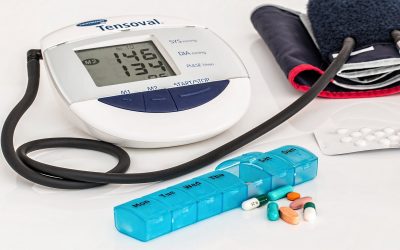CARTIF Projects
MATRYCS
Buildings Data exchange, management and real-time processing
Description
The overall vision and main objectives of MATRYCS is to define and deploy a Reference Architecture for Buildings Data exchange, management and real-time processing, and to translate this reference architecture into an Open, Cloud-based Data Analytics Toolbox (MATRYCS Modular Toolbox). It will enable AI-based cross-sector analytics for smart energy-efficient buildings, based on seamless data-information-knowledge exchange under respective sovereignty and regulatory principles.
Overall, the technical solution follows the MATRYCS Reference Architecture and it consists of three main pillars:
i) MATRYCS-GOVERNANCE encompassing modules related to data collection, semantic annotation and distributed storage
ii) MATRYCS-PROCESSING including ML and Dl models
iii) MATRYCS-ANALYTICS providing a set of analytics tools as a service
These three pillar will be validated in a series of 11 large scale pilots, focusing on digital building twins, improved buidings operation, building infrastructure design, EU/national policy assessment and energy efficiency investments. Additionally, a BDA Alliance will be set up as a vibrnat data-driven ecosystem for attracting new data hubs and SME service providers, enabling thus EU-wide take-up and replication.
Objectives
- To develop a semantic and business interoperability framework for cross domain analytics applications, cross-context learning and datasets spanning entire buildings value chains.
- To deliver a TRL 7 data governance technology enabler which will facilitate seamless cross-stakeholder data sharing, trusted data exchange and handling, allowing full data sovereignty and control.
- To adapt, evolve, upscale and deploy TRL7 technology enabler for a set of trained, high-quality ML and DL models by exploiting existing dataset formats across Europe.
- To upscale and deploy the MATRYCS open, cloud-based data analytics toolbox along different deployment modes (IaaS, SaaS, PaaS).
- To demonstrate the applicability, effectiveness and value of MATRYCS solutions through real-life applications.
- To lay the foundation of pan European Smart buildings trusted and certificable data vibrant ecosystem, boosting EU-scale data economy and valorisation and impact on standarisation.
Actions
- To deliver an open reference architecture for Smart energy efficient buildings.
- To upscale a number of TRL5-6 technology enablers (big data pipeline orchestration, IoT/Edge AI federated learning and visual analytics)
- To deliver a TRL8 open modular big data clud analytic toolbox.
- To validate such framework of analytic services in 11 large scale pilots with different stakeholders, focusing on energy performance, design, funding and policy implementation and assessment.
- To set up the Big Data Alliance as a vibrant data-driven ecosystem for attracting new data hubs and SME service providers, enabling thus EU-wise take-up and replication.
Expected Results
- MATRYCS data governance (Gobierno de datos de MATRYCS)
- MATRYCS processing (Procesamiento MATRYCS)
- MATRYCS analytics (Analíticas de MATRYCS)
- Tecnologías/subcomponentes individuales de MATRYCS (p. ej., semántica, aprendizaje automático, conectores de cadena de bloques/API, etc.).
- Integración y homogeneización de datos para el contexto del sector energético
- Buenas prácticas – aplicaciones – servicios
- La plataforma MATRYCS en su conjunto
Partners

Video
Please accept cookies to access this content
H2020
H2020-LC-SC3-B4E-6-2020-Big data for buildings

Total Budget: 4,577,835€
CARTIF Budget: 493,250€
Duration: 01/10/2020 – 30/09/2023

Responsible
Gema Hernández Moral
Division de Energias
Networking
Energy Efficiency projects:
ENERGYGUARD
The EnergyGuard project will create an innovative test platform for artificial intelligence (AI) in the energy sector, integrating five European test centres with a green HPC infrastructure.
SIRCULAR
SIRCULAR seeks to transform the construction sector into a sustainable, low-carbon industry through decarbonisation strategies. Its main objective is to reduce carbon emissions by minimising reliance on virgin materials and exploring low-carbon alternatives, such as recycled materials.
SMARTeeSTORY
SMARTeeSTORY will create an integrated intelligent building automation and control system to monitor and optimise the energy performance of historic non-residential buildings, according to an innovative multi-domain approach (integrating the 9 domains proposed by the ISR methodology).
FoSSIS3
FoSSIS3 objective is to develop an operational Platform based on artificial intelligence to support decision-making in the energy planning process, through the characterization and estimation of the solar resources, and the development of analytics that support the strategy to improve the energy behavior of the building sector.
BuildON
BuildOn pretends to develop a generic solution and highly replicable to offer services on buildings, facilitate the integration of their systems and technologies and with it, help to construct a new generation of smart buildings.
ENFLATE
ENFLATE applies technologies on data-driven energy and non-energy services, which it will replicate in different geographies and climates, considering different consumer needs.
DIGIBUILD
DigiBUILD overview is to provide an open, interoperable, cloud-based toolbox to transform buildings from traditional `silos´ into interoperable, smarter, digital buildings based on consistent and reliable data
DEDALUS
DEDALUS will design, develop and demonstrate micro (home/flat) and macro (building and district) participatory demand response ecosystems in multiple energy vector systems and with a social and human science based approach
PROBONO
PROBONO brings together a European multidisciplinary consortium of 47 partners, to turn the six European districts into Green Building Neighbourhoods, with positive energy balance and zero carbon emissions: two large-scale demonstrators and four living labs representing business/owner promoters of the green buildings and neighbourhoods transition.
BD4NRG
BD4NRG envisions to confront big data management challenges for the energy sector, giving a competitive edge to the European stakeholders to improve decision making and at the same time to open new market opportunities.
EnergyChain
EnergyChain goal is to use Blockchain to develop a system that will support the energy exchange between prosumers without the need of a central entity in charge of the managing.
frESCO
frESCO aims to engage with ESCOs and aggregators and enable the deployment of innovative business models on the basis of novel integrated energy service bundles that properly combine and remunerate local flexibility for optimizing local energy performance both in the form of energy efficiency and demand side management.
Auto-DAN
The Auto-DAN project aims to enable homes and small businesses across the EU to optimize their energy consumption and provide and assessment of the live energy performance of a building. The solution will focus on the assistive role automation will have in buildings.
MiniStor
MiniStor aims at designing and producing a nvel compact integrated storage system for achieving a sustainable heating, cooling and electricity storage adaptable to residential buildings.
SO WHAT
SO WHAT project aims to develop and validate an integrated software for auditing industrial process, planning and simulation of waste heat and cold (WH/C) valorisation systems towards the identification of economically viable scenarios where WH/C and renewable energy sources (RES) cooperate to match local demand.
BIM-SPEED
BIM-SPEED has as its main objective to seeks to increase the use of BIM methodologies in the deep renovation of buildings for energy efficiency
SUDOKET
The Sudoket project focuses its activity on the mapping, consolidation and dissemination of Key Enabling Technologies (KETs) for the construction sector in the SUDOE space.
SISGENER
SISGENER’s objective is the development of a low-cost comprehensive energy management system for the management of generation and consumption that takes place in buildings with centralized services.
QUDRA
Energy improvement plan that allowed the reduction of municipal energy expenditure and the training of municipal technicians in energy matters
GAPSA
The GAPSA project’s main objective is to clearly define the real savings obtained due to the savings measures that will be implemented in the 33 primary care health centers
REEMAIN
The REEMAIN project combines cutting-edge knowledge and experience to develop and demonstrate a methodology and platform that drives the efficiency of energy and material resources.




















